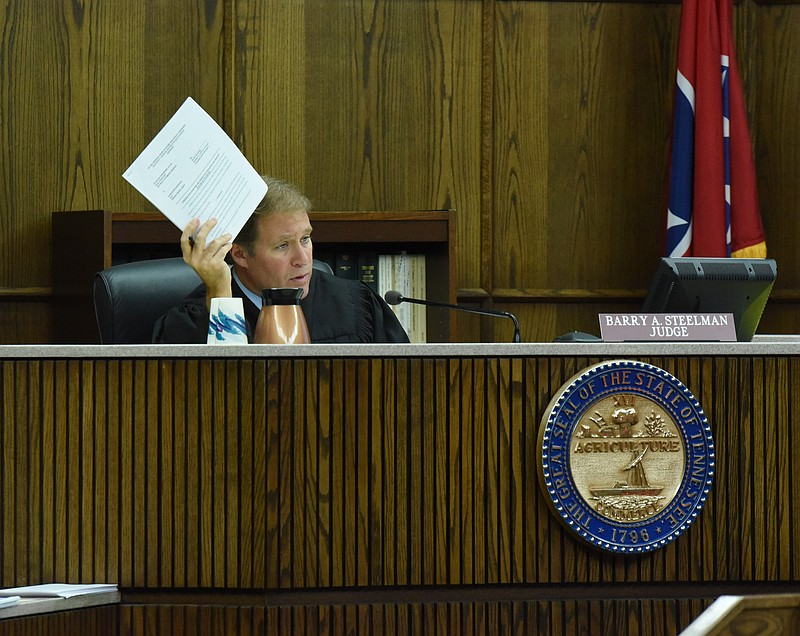A defense attorney questioned Monday why a court order that allows police to arrest 31 alleged gang members for being seen together in East Lake Courts hasn't been enforced for the last four months.
"The injunction is supposed to be a special remedy because of an immediate need," Chrissy Mincy said in Hamilton County Criminal Court. "If it's been in effect for months and it's not being utilized, then I think that underscores our argument that ... there's no immediate or irreparable harm."
Judge Barry Steelman, who approved the temporary order in December, asked defense attorneys and prosecutors to iron out any outstanding issues within the next two weeks so he can pick a final hearing date.
The next hearing in the case is scheduled for May 15.

The "gang injunction" pits prosecutors who want police to have more legal power to stop routine troublemakers against defense attorneys who call the order a violation of the First Amendment right to freedom of association.
Hamilton County District Attorney Neal Pinkston unveiled his plan in September, saying a court order would give police officers more legal power to stop 31 men who allegedly belong to two street gangs: The Grape Street Crips and the Gangster Disciples. Because he says these men bring crime to a nearly 2-mile stretch of East Lake Courts, Pinkston wants the gangs declared a public nuisance through a court order, or injunction.
To that end, Pinkston presented proof for five hours in October. Steelman approved a temporary version of the injunction, which says each man can be fined $50 and spend up to 30 days in jail for violating a number of listed activities - including owning graffiti equipment, drinking alcohol, possessing guns and drugs, signaling the arrival of police, or hanging out with other accused gang members.
Chattanooga officers use a points system to validate someone as a gang member. Tattoos, self-admittance, and associating with other gang members are all weighed differently, and a person only needs 10 points to be validated as a gang member. Anything less means you're "associated" with gangs.
Defense attorneys say the forms are subjective, based on hearsay, and that prosecutors haven't connected the violence to these 31 men specifically. Mincy has long said the injunction - which lists 30 black men - would only increase the divide between police officers and minorities, and that city leaders could more effectively address the issue of violence by investing in education. Other attorneys have questioned whether the order includes the whole gang or just the 31 listed men.
Either way, Chattanooga police aren't still enforcing the injunction for a couple of reasons.
In January, a spokeswoman said the department wanted to be sure all 31 men were served with notice to appear in court before enforcing anything. The department then needed to create an officer-wide policy, train two units that regularly deal with high-crime areas like East Lake, and get approval from an internal committee made up of citizens and cops that reviews whether new strategies are fair.
"I was briefed that [officers and assistant prosecutors] were finalizing the training and our policy was pending committee approval," Chief Fred Fletcher wrote in an April 4 email to Pinkston.
Spokesman Rob Simmons could not say Monday whether the committee had approved the policy.
Some gang injunctions in other cities have been approved before each defendant was notified that authorities intended to seek action against them, Pinkston's spokeswoman, Melydia Clewell, wrote in a statement.
"Throughout this process, the DA has been careful to make sure the East Lake injunction does not infringe upon any of the defendants' civil rights and that this process is as transparent as possible for the court's review and the community's overall understanding of what we are trying to accomplish in making East Lake safer for those who live and work in that neighborhood," she said.
Contact staff writer Zack Peterson at zpeterson@timesfreepress.com or 423-757-6347. Follow him on Twitter @zackpeterson918.

